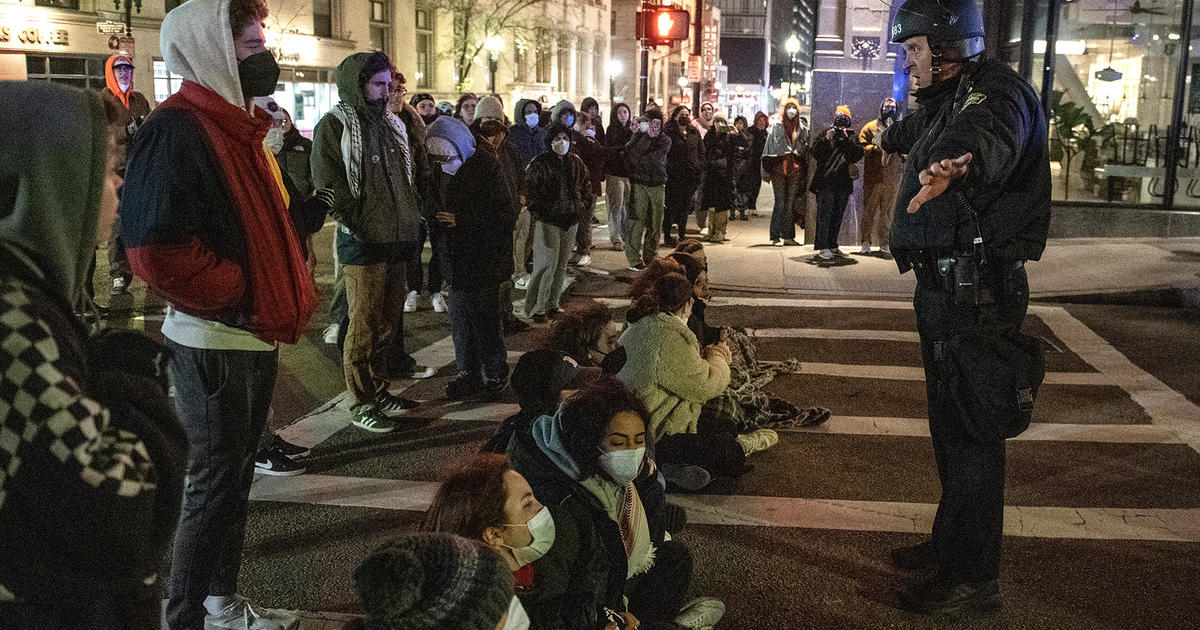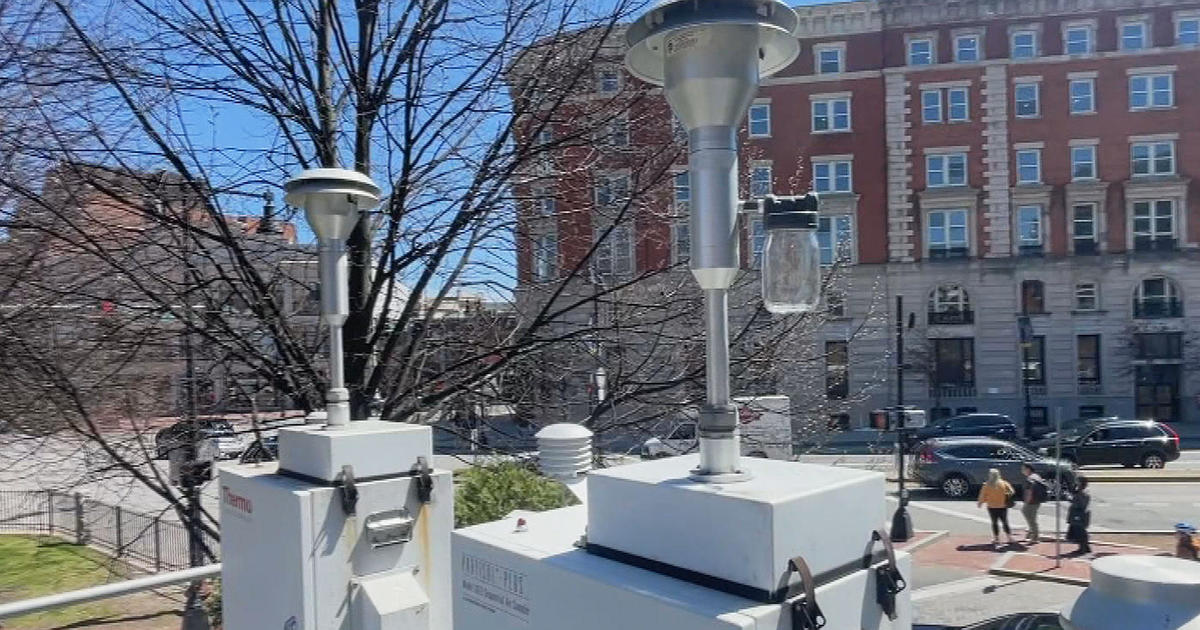FDA, CDC Call For Johnson & Johnson Vaccine Pause To Investigate Rare Blood Clots
BOSTON (CBS) - The CDC and FDA are recommending a pause in the use of the Johnson & Johnson COVID-19 vaccine in the United States "out of an abundance of caution." The federal agencies issued a joint statement Tuesday morning saying they are reviewing six reported cases of a "rare and severe" type of blood clot in people who have received the single dose vaccine.
'EXTREMELY RARE'
As of Tuesday, more than 7.2 million doses of the J and J vaccine have already been administered in the U.S. Researchers say these blood clots appear to be "extremely rare."
None of the six cases are linked to Massachusetts, according to the state's COVID-19 Response Command Center.
According to state data released Monday, 181,034 doses of the Johnson & Johnson vaccine have been administered in Massachusetts. The state's Department of Public Health said it is "notifying all Massachusetts providers to pause administration of the Johnson & Johnson COVID-19 vaccine, effective immediately."
CVS said it is also pausing its use of the Johnson & Johnson vaccine at Massachusetts pharmacies "per the recommendation from federal health agencies."
All six of the U.S. blood clot cases have been in women between the ages of 18 and 48 and have happened 6-to-13 days after vaccinations. Dr. Peter Marks, the Director of the FDA's Center for Biologics, said one of the patients died and one is in critical condition. He noted it is too early to tell whether there is a link between the blood clots and birth control because the women are of child bearing age.
According to CBS News medical contributor Dr. David Agus, the women all had pain in the abdomen or a headache.
"People who have received the J&J vaccine who develop severe headache, abdominal pain, leg pain, or shortness of breath within three weeks after vaccination should contact their health care provider," the agencies said in their statement.
"This kind of blood clot is occurring in the cerebral veins in the brain that really has an implication as far as the seriousness of the consequences," Dr. Shira Doron, an Infectious Disease Physician at Tufts Medical Center, told WBZ-TV. "This definitely raises some red flags and that's why even though this is actually a one in a million event, the FDA has decided to make the statement that it made today."
WHAT'S CAUSING IT?
In a news conference Tuesday, Acting FDA Director Dr. Janet Woodcock said the leading theory behind the blood clots is that this is a rare immune response that the patient's body has to the vaccine. She believes the pause will be a matter of days as the CDC and FDA do aggressive outreach to clinicians on how to potentially treat these clots in the future.
"At present, no clear causal relationship has been established between these rare events and the Janssen COVID-19 vaccine," Johnson & Johnson said in a statement to CBS News Tuesday.
"CDC will convene a meeting of the Advisory Committee on Immunization Practices (ACIP) on Wednesday to further review these cases and assess their potential significance. FDA will review that analysis as it also investigates these cases," the agencies said.
"Until that process is complete, we are recommending this pause. This is important to ensure that the health care provider community is aware of the potential for these adverse events and can plan due to the unique treatment required with this type of blood clot."
A similar issue has been seen in the AstraZeneca vaccine, which is not yet approved for emergency use in the U.S.
"They actually have an inactivated virus in them which does trigger the immune system potentially in a different way," Dr. Doron told WBZ.
"When you're seeing it with two different vaccines that have some similarity we get really worried," Dr. Agus said on CBS This Morning. "Tomorrow morning there'll be an advisory meeting where they'll review these six cases and see whether they think they are related to the vaccine or not and what to do."
"It's horrible, absolutely horrible. I wish it hadn't happened. it's going to put a wrench in what's going on with the vaccines, all of the vaccines, and we need to to figure this out and develop a national plan to move forward," Dr. Agus said.
The Pfizer and Moderna vaccines, which are made using a different technology, have not had any blood clot issues.
If you've had the J and J vaccine, Dr. Agus says "listen to your body" if you have concerns.
"If you have any symptoms where you have pain and it's unexplainable, go to an emergency room right away. And doctors around the country are now aware of this and they know how to treat it," he told CBS This Morning.
Dr. Doron said if it's been a couple weeks since you've had your vaccination you probably don't need to worry at all.
Anyone who has an appointment scheduled for a J&J vaccine should contact the provider they booked it with directly to get the status of that appointment.
The White House COVID-19 response coordinator Jeff Zients said Tuesday's announcement will not have a significant impact on the federal vaccination plan because Johnson & Johnson's shot makes up less than five-percent of the vaccine supply and the U.S. has secured enough Pfizer and Moderna doses for 300 million Americans.
Johnson & Johnson released this statement Tuesday:
The safety and well-being of the people who use our products is our number one priority. We are aware of an extremely rare disorder involving people with blood clots in combination with low platelets in a small number of individuals who have received our COVID-19 vaccine. The United States Centers for Disease Control (CDC) and Food and Drug Administration (FDA) are reviewing data involving six reported U.S. cases out of more than 6.8 million doses administered. Out of an abundance of caution, the CDC and FDA have recommended a pause in the use of our vaccine.
In addition, we have been reviewing these cases with European health authorities. We have made the decision to proactively delay the rollout of our vaccine in Europe.
We have been working closely with medical experts and health authorities, and we strongly support the open communication of this information to healthcare professionals and the public.
The CDC and FDA have made information available about proper recognition and management due to the unique treatment required with this type of blood clot. The health authorities advise that people who have received our COVID-19 vaccine and develop severe headache, abdominal pain, leg pain, or shortness of breath within three weeks after vaccination should contact their health care provider.
For more information on the Janssen COVID-19 vaccine, click here.
WBZ-TV's Louisa Moller and Anna Meiler contributed to this story. You can follow them on Twitter @LouisaMoller and @AnnaMeiler.



